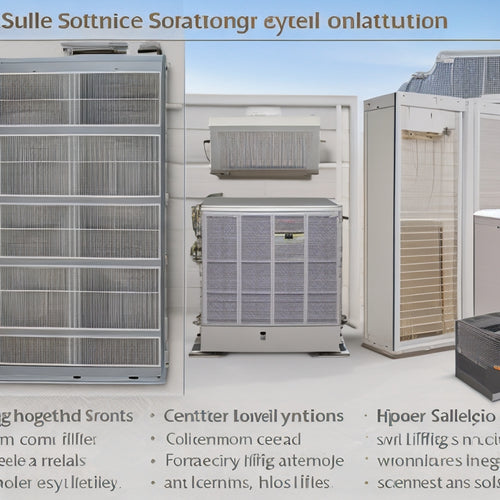
Electric Vehicles Reshape Automotive Industry Standards
Share
The automotive industry is undergoing a paradigm shift as electric vehicles (EVs) reshape traditional manufacturing standards. Electrification is driving innovation in production processes, reconfiguring industry norms to accommodate growing demand for EVs and autonomous driving technologies. OEMs are adapting by investing in eco-friendly transportation solutions, automation, and upskilling their workforce. As the industry shifts towards a sustainable future, new challenges arise, including infrastructure development and regulatory hurdles. As the landscape continues to evolve, staying ahead of the curve will require a deep understanding of the complex interplay between technology, infrastructure, and workforce development. Further exploration reveals even more nuanced implications.
Key Takeaways
• Electric vehicles drive the electrification of automotive manufacturing, reshaping industry standards for a sustainable future.
• OEMs adapt production lines to accommodate EV components, increasing efficiency and reducing costs through automation advancements.
• Industry standards are redefined as OEMs heavily invest in eco-friendly transportation solutions, prioritizing sustainable mobility and reducing emissions.
• Charging innovation and infrastructure development are crucial for widespread EV adoption, with standardized charging infrastructure still lacking.
• The EV revolution reshapes the automotive industry's workforce, requiring upskilling and reskilling programs to mitigate skill gaps and create a sustainable workforce.
Electric Revolution in Manufacturing
The electrification of manufacturing processes is revolutionizing the automotive industry. Original equipment manufacturers (OEMs) and suppliers are adapting to the increasing demand for electric vehicles (EVs) and autonomous driving technologies. This shift is driving significant changes in the supply chain as companies invest in new technologies and processes to support EV production.
Automation advancements are playing a pivotal role in this transformation, enabling manufacturers to increase efficiency and reduce costs. As a result, OEMs are reconfiguring their production lines to accommodate EV-specific components, such as battery packs and electric motors.
This electric revolution in manufacturing is poised to reshape the industry's standards, paving the way for a more sustainable and efficient future.
Sustainable Mobility Takes Center Stage
As the automotive industry continues to evolve, sustainable mobility is emerging as a critical component of the electric vehicle revolution, driven by growing consumer demand for eco-friendly transportation solutions.
The shift towards sustainable mobility is largely attributed to the environmental impact of traditional internal combustion engines, with electric vehicles (EVs) offering a cleaner alternative.
Charging innovation is key to widespread EV adoption, with advancements in fast-charging technology and infrastructure development playing an essential role.
As the industry prioritizes sustainable mobility, OEMs are investing heavily in EV production, with a focus on reducing environmental impact and promoting eco-friendly transportation solutions.
This paradigm shift is poised to reshape the automotive landscape, driving a cleaner, more sustainable future for generations to come.
New Era of Performance and Design
Nearly 80% of electric vehicle (EV) models are expected to highlight significant performance capabilities, such as enhanced acceleration and responsive handling, as the industry enters a new era of performance and design. This shift is driven by efficiency innovation, which enables EVs to achieve remarkable speed and agility while minimizing energy consumption.
Aesthetic advancements also play a vital role, as sleek and aerodynamic designs optimize airflow and reduce drag, further enhancing overall performance. The result is a new generation of EVs that not only excel in terms of sustainability but also deliver exceptional driving experiences.
As the industry continues to evolve, we can anticipate even more impressive advancements in performance and design.
Infrastructure and Regulation Challenges
Rapidly expanding electric vehicle adoption has underscored the need for extensive infrastructure development and regulatory frameworks to support widespread EV integration.
The lack of standardized charging infrastructure and limited access to charging stations pose significant regulatory hurdles to widespread EV adoption. Additionally, the existing charging network is often fragmented, with varying connectors, payment systems, and charging speeds, hindering seamless EV integration.
To address these challenges, governments and companies are investing in charging network expansion, with a focus on standardization, interoperability, and scalability. Effective regulatory frameworks are also vital in addressing these infrastructure challenges, ensuring a cohesive and efficient shift to an EV-dominated automotive industry.
Future of Automotive Industry Workforce
The electric vehicle revolution is poised to greatly reshape the automotive industry's workforce, necessitating a thorough transformation in skills, training, and workforce development to support the emerging EV ecosystem.
As the industry shifts towards electrification, workforce training will play a critical role in upskilling and reskilling existing employees to meet the demands of EV production and maintenance. This presents new job opportunities in areas such as electric powertrain development, battery management, and charging infrastructure installation.
Governments and companies must invest in workforce development programs to guarantee a smooth shift and mitigate the risk of skill gaps. By doing so, the industry can unleash the full potential of EVs and create a sustainable future for the automotive workforce.
Frequently Asked Questions
How Will EVS Impact Automotive Industry Profit Margins?
"As EVs revolutionize the industry, profit margins will be reshaped by innovative pricing strategies and significant cost savings from reduced production complexity, economies of scale, and lower operational expenditures, yielding a seismic shift in profitability."
Can Existing Manufacturing Infrastructure Adapt to EV Production?
Existing manufacturing infrastructure can adapt to EV production through strategic supply chain optimization and targeted factory retrofitting, enabling efficient integration of new technologies and minimizing capital expenditures.
Will EV Adoption Lead to Job Losses in Traditional Manufacturing?
'According to a study, 70% of automotive workers may need retraining as EV production grows. A workforce shift is imminent, requiring a skillset change towards EV-specific expertise, potentially mitigating job losses in traditional manufacturing.'
Can EV Batteries Be Recycled or Repurposed?
"EV batteries can be recycled and repurposed, leveraging battery refurbishment and energy storage technologies to maximize their lifespan and reduce waste, ensuring a sustainable and environmentally responsible approach to EV adoption."
Will EVS Create New Cybersecurity Risks in the Automotive Industry?
"Silent sophisticated systems surrender to sinister sabotage: Electric vehicles introduce novel network vulnerabilities, exposing supply chains to cyber threats, and necessitating robust security measures to safeguard sensitive systems and protect proprietary data."
Related Posts
-

Why Solar HVAC Filters Revolutionize Home Energy Efficiency
By adopting solar HVAC filters, you're shifting your home's energy reliance from fossil fuels to clean, renewable sou...
-

Smart Energy: Greener Homes With Connected Power Devices
You can control and optimize your energy consumption with smart energy devices, reducing your carbon footprint by up ...
-

Why EVs Inspire Earth-Conscious Home Design Choices
As you shift to an electric vehicle, you're not just switching to a greener ride, you're igniting a broader commitmen...


